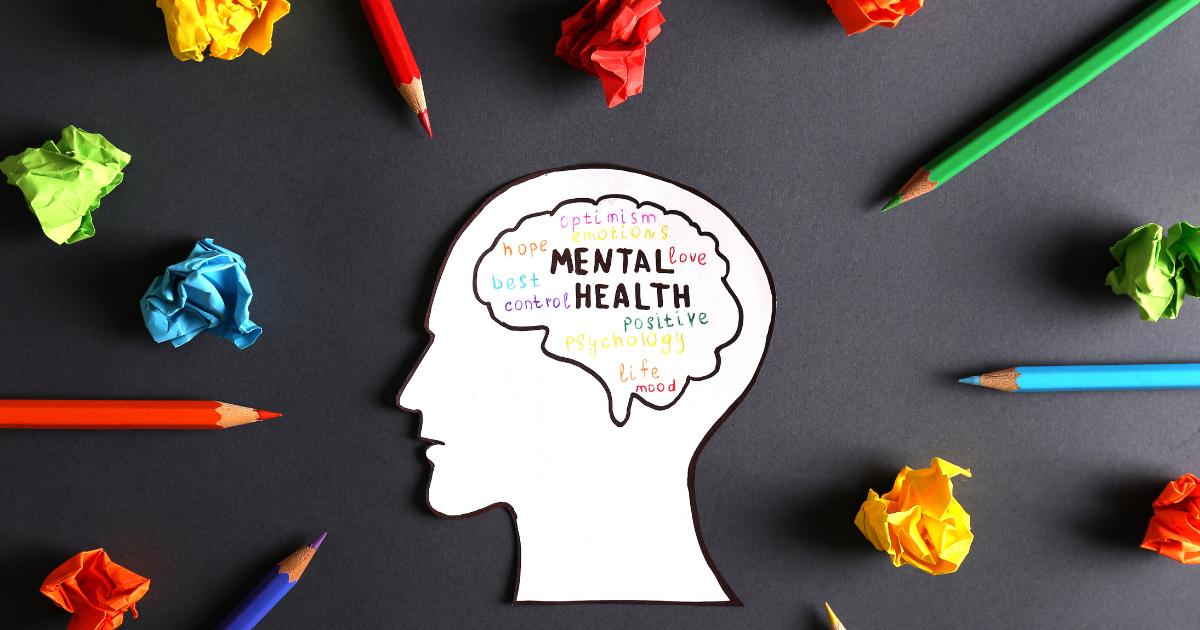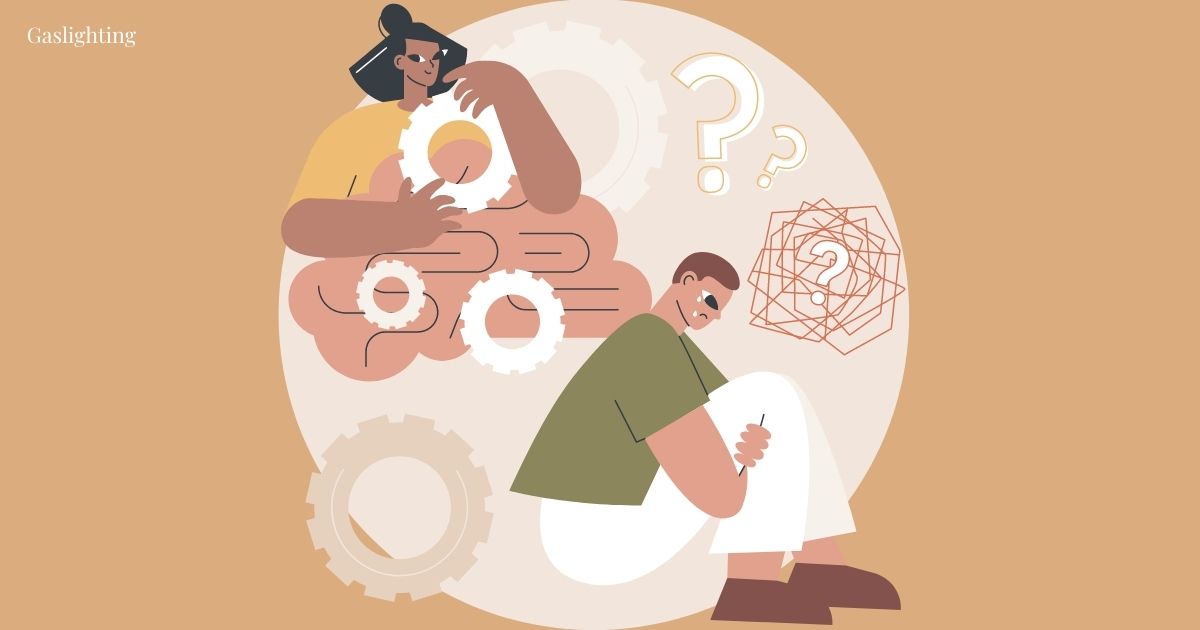Jul 3, 2023 |

Anxiety is a common mental health condition that affects individuals of all ages and backgrounds. It can manifest in various forms and can significantly impact a person’s daily life. Recognizing the different types of anxiety, understanding the symptoms, and exploring available treatment options are crucial steps towards finding relief and reclaiming peace. At MyPeaceful.Place, we provide valuable insights into anxiety and offer trusted counselling services and mental health support in Singapore to help individuals on their journey towards healing.
Types of Anxiety and Their Symptoms
- Generalized Anxiety Disorder (GAD): GAD is characterized by persistent and excessive worry about various aspects of life, including work, relationships, and health. Symptoms may include:
- Restlessness and feeling on edge
- Fatigue and difficulty concentrating
- Irritability and muscle tension
- Sleep disturbances
- Constant feelings of worry and impending doom
- Panic Disorder: Panic disorder involves recurrent panic attacks that are sudden and intense, often accompanied by overwhelming fear or discomfort. Symptoms of a panic attack may include:
- Rapid heartbeat and chest pain
- Shortness of breath or hyperventilation
- Trembling or shaking
- Sweating and feeling lightheaded
- Fear of losing control or going crazy
- Social Anxiety Disorder (SAD): SAD is characterized by an intense fear of social situations and a constant worry about being judged or embarrassed. Symptoms may include:
- Avoidance of social gatherings or situations
- Fear of public speaking or performing in front of others
- Excessive self-consciousness
- Physical symptoms such as blushing, sweating, or trembling in social situations
- Overanalyzing social interactions and fearing negative evaluation
Treatment Options for Anxiety
- Therapy and Counselling: Trusted counselling services and mental health professionals offer effective therapeutic interventions for managing anxiety. Cognitive-behavioral therapy (CBT) is a widely recognized approach that helps individuals identify and challenge negative thought patterns and develop healthier coping mechanisms.
- Medication: In some cases, medication may be prescribed by psychiatrists to alleviate severe symptoms of anxiety. Antidepressants and anti-anxiety medications are commonly used to help rebalance neurochemical imbalances in the brain and reduce anxiety symptoms.
- Lifestyle Changes and Self-Care: Incorporating self-care practices into daily routines can play a significant role in managing anxiety. This may include regular exercise, practicing relaxation techniques such as deep breathing or mindfulness meditation, maintaining a healthy diet, and getting enough sleep.
Seeking Mental Health Services in Singapore
In Singapore, mental health services play a vital role in supporting individuals with anxiety disorders. Trusted counselling services, such as those offered at MyPeaceful.Place, provide a safe and supportive environment for individuals to explore their feelings, learn coping strategies, and develop resilience in the face of anxiety.
If you or someone you know is struggling with anxiety, reach out to mental health professionals in Singapore who can provide the necessary guidance and support. Taking the step towards seeking help is a courageous act that can lead to a more peaceful and fulfilling life.
In conclusion, understanding the different types of anxiety, recognizing the symptoms, and exploring available treatment options are essential in managing anxiety effectively. At MyPeaceful.Place, we are committed to providing trusted counselling services and mental health support in Singapore, empowering individuals to overcome anxiety and find inner peace. Remember, you are not alone in your journey, and there is help available to support you on the path to healing.
May 10, 2023 |

Which health insurance companies in Singapore cover mental health services?
Increased Awareness about Mental Health
For the past two years, there had been a higher demand for mental health support and services for almost all age groups. This may be caused by the struggles, changes, and adjustments brought about by the pandemic. With this, there has been a global increase in the spreading of awareness about mental health and its importance. This has also helped in slowly debunking the stigma about mental health and becoming more open in availing of mental health services such as counselling for people’s mental health needs.
Mental Health in Singapore
Mental health in Singapore has been given more awareness in the past years through seminars and programs in different settings such as schools, offices, and communities. It is vital for Singaporeans to be more informed about their options when it comes to mental health services. The next step after awareness is for them to know the costs of these services and assess if they have the capacity to avail of them. Understandably, there will be some financial barriers which are the reasons why some people choose not to proceed with these services despite knowing that they are in need of them.
Average Cost of Mental Health Services in Singapore
The average cost of a one-hour individual counselling session in Singapore is from S$150-180. There are some clinics or counsellors who give discounts if you plan to avail of packages such as committing to 10 sessions which can lower the rate to S$130 per session. Nowadays, there are also options for sessions through video, audio, or text messages instead of face-to-face. The rates for these sessions are slightly lower than sessions done in person. Clients can also opt to have sessions with senior professional counsellors at a higher price per session which can go up to S$ 230- 240 per session.
We can also say that there is a significant difference in the rates between public and private clinics. In public clinics, therapy sessions can range from S$40-80. In addition, some private clinics are giving discounts or subsidies to clients who cannot afford the rates because of their low income. We will discuss more of this in our next articles.
If we sum it up, counselling sessions per month (with the assumption that the client will just have 1 session per week) can range from S$600- 900 in private clinics while sessions in public clinics can range from S$ 180- 320 per month. These amounts are only for counselling sessions and additional costs such as emergency in-patient treatments or medications are excluded.
AFFORDABLE OPTIONS TO AVAIL MENTAL HEALTH SERVICES
Our team called My Peaceful Place, is composed of carefully selected competent counsellors, psychologists, and life coaches based in Singapore. It is our advocacy as a group to spread awareness about the importance of mental health and provide information on how to easily access mental health services. In line with this mission, we created this article to help give information about the general cost of counselling sessions and some ways to avail of affordable mental health services.
We understand how costly counselling sessions can be for some so our team gathered data about payment options and support available to Singaporeans to afford these mental health services. We listed here the available government subsidies and private company insurance that offers some mental health coverage.
GOVERNMENT POLICIES WITH MENTAL HEALTH COVERAGE
MediShield Life
Mental Health Coverage:
- Individuals can utilise up to 35 days of psychiatric inpatient care per year, with a claim limit of up to S$100 per day. This applies to B2 or C wards in public hospitals but can be upgraded to ward classes above that with additional out-of-pocket costs.
Limitation:
- Outpatient treatment services are not included in this plan. However, since Singapore citizens and permanent residents are all covered by MediShield Life, they can choose to upgrade their Medishield Life health insurance plan by purchasing an Integrated Shield Plan. This allows them to make more claims for mental health treatments such as psychiatric hospitalisation, outpatient treatment, and diagnosis received before and after hospitalisation. The client can also be able to use B1 or A wards, or private hospitals but they still need to provide additional out-of-pocket costs.
MediSave
Mental Health Coverage:
- Under the Chronic Disease Management Programme that is available at public hospitals, Specialist Outpatient Clinics (SOCs), polyclinics and private specialist clinics in Singapore, a client can utilize up to S$150 per day for daily hospital charges, subject to a maximum of S$ 5,000 a year for inpatient treatment services.
- For outpatient treatments, individuals can utilize up to S$500 per MediSave account per year which is still subject to a 15% co-payment by the patient. Under the Chronic Disease Management Programme (CDMP), this service can be used for outpatient treatments for the following disorders:
- Schizophrenia
- Major depression
- Bipolar disorder
- Anxiety
- Dementia
PRIVATE HEALTH INSURANCE COMPANIES WITH MENTAL HEALTH COVERAGE
Take note that these are also available for the Integrated Shield Plan where clients can upgrade from their MediShield Life plan. Also included here are their websites showing the details of these plans.
AIA Beyond Critical Care Insurance Plan
Mental Health Coverage:
- This plan includes a Mental Well-being Benefit where a client can get an additional 20% of the coverage amount (up to S$50,000 per claim) until age 75 for five prominent mental illnesses such as major depressive disorder (MDD), schizophrenia, bipolar disorder, obsessive-compulsive disorder (OCD), and Tourette syndrome (up to age 21).
- There is a limit of $50,000 per mental illness and $150,000 for all claims for mental illnesses by the AIA Beyond Critical Care or any policies issued by AIA.
Limitation: This policy is only applicable to those who have not been diagnosed with mental illnesses yet.
Great Eastern Plans
Mental Health Coverage: This company has three plans that include mental health coverage.
- The GREAT CareShield plan supports long-term disability including mental health conditions that cause the inability to perform any daily activity such as feeding or dressing oneself.
- The PayAssure Plan will cover some or all regular living expenses in the event of inability to work in a current occupation due to illness, mental condition or injury.
- With GREAT Family Care, a multi-generational Critical Illness term plan, you can add riders for family members to cover conditions like dementia and Alzheimer’s disease.
Limitation: Most of these are coverage for expenses when a person cannot continue with regular living expenses or disability caused by mental health conditions.
Singlife with Aviva (formerly Aviva MyShield)
Mental Health Coverage:
- This plan covers inpatient psychiatric treatment for up to 60 days per policy year (up to ‘as charged’, depending on the plan). This is after 10 months of continuous cover.
- For treatment within 10 months of continuous cover, coverage will be $500 per day, up to 35 days per policy year.
Limitation: Pre- and post-hospitalisation treatment which is given before or after inpatient psychiatric treatment is not covered.
HSBC Life (formerly AXA Shield Plan)
Mental Health Coverage:
- This plan covers inpatient psychiatric treatment up to $5,000, capped at 35 days per policy year, depending on your plan. The client will be reimbursed for daily Normal/HDU/ICU ward(s) and treatment charges incurred up to 35 days per Policy Year during the period the life assured is hospitalised to receive psychiatric treatment. This will be subject to the benefit limits stated in the benefits schedule for inpatient psychiatric treatment.
- There is also coverage of up to $5,000 per policy year for post-hospitalisation psychiatric treatment, within 200 days of hospital discharge.
Limitation: Pre-hospitalisation treatment which is given before inpatient psychiatric treatment is not covered. Also, treatments for mental, emotional, personality, nervous, physical, psychological, learning, educational, behavioural and psychiatric problems, disorders and developments are not covered except where expressly covered by the inpatient psychiatric treatment and post-hospitalisation psychiatric treatment under the additional benefits of the policy.
Additional Services for Mental Health: AXA has partnered with Naluri, a digital therapeutics company, to offer a digital health coaching program with a focus on mental well-being for their customers. AXA customers can enjoy exclusive access to a mental wellness program — Naluri Lite. This promotes mental and physical health through personalised and structured behavioural and psychological coaching. It is done with the help of features such as behavioural change tools, information and tips, and the option to sign up for personalised coaching by professionals via chat. These professionals include psychologists, dieticians, fitness coaches and more.
Enhanced Income Shield
Mental Health Coverage:
- This plan covers inpatient psychiatric treatment up to $7,000 per policy year. It pays for psychiatric treatment provided to the insured while in the hospital by a registered medical practitioner qualified to provide that psychiatric treatment.
Limitation: Pre-hospitalisation and post-hospitalisation treatments are not covered for treatment given before or after inpatient psychiatric treatment benefit.
PruShield
Mental Health Coverage:
- This plan covers inpatient psychiatric treatment up to $4,000 per policy year. This amount varies depending on the type of plans and riders bought.
Limitation: This does not cover outpatient treatments and pre or post-hospitalization treatments.
MENTAL HEALTH INSURANCE FOR SPECIFIC GROUPS
There are also some case-specific insurance or services covering their mental health concerns. Here are the following:
Manulife ReadyMummy
Mental Health Coverage:
- This 3-year plan provides protection from early pregnancy up to the third policy year for mental health conditions like major depressive disorder and generalized anxiety disorder. It pays out 10 percent of the insured sum for psychotherapy treatment and covers other pregnancy conditions and treatments, as well as protection for the child from birth.
Limitation: This plan is aimed at providing mental health support specifically for expectant mothers rather than the general population.
Chubb Work From Home Insurance (Group Insurance)
Mental Health Coverage:
- Covers up to $500 per employee. This benefit can be used to pay for mental health or psychological counselling expenses of employees diagnosed with stress disorders caused or contributed to by working-from-home arrangements.
Limitation: This plan can only be given to groups or companies who are interested in this specific kind of service.
Mercer & Aviva’s Mental Wellness Plan (Group Insurance)
Mental Health Coverage:
- It includes coverage for employee mental health conditions, cost of approved medications, and access to a carefully selected panel of qualified mental health professionals. This new Mental Wellness Plan is available to employers that have a medical plan insured with Singlife.
Limitation: This plan can only be bought as a group or for companies. Employers can buy on behalf of their employees if they are already purchasing group insurance from Aviva.
It can be seen from our list that most insurance companies only cover inpatient services but there are a few which includes pre- and post-hospitalization treatments depending on the plan. Some cover outpatient services but with additional costs or premiums added to the client’s insurance. We hope that this information and list become a helpful guide when it comes to looking for affordable options for mental health services. If you are still looking for other options such as specific clinics offering subsidies, organizations offering free counselling services, and 24/7 hotlines for mental health, we are going to discuss them in our next article.
Sources:
Information about Integrated Shield Plan
Cost of Mental Health Services in Singapore
Mental Health Insurance Coverage in Singapore
Care Subsidies and Funds Explained
Universal Health Coverage in Singapore
Price you Pay for Mental Health
The Cost of Mental Health and Why You should GIve Importance to it
May 10, 2023 |

In November 2012, I attended a seminar about Play Therapy which was facilitated by PhilPlay. Before that day, I did not have any clear idea about Play therapy but after completing the three-day seminar, I can say that it helped me become a better psychologist and more to it, a better person.
I am not writing this to share with you the techniques or the concepts I learned because it would take too much time, practice, and expertise to do that. I am writing this now to impart to you some life lessons I realized while undergoing the training.
1. Our deepest emotions cannot be captured by words.
People tend to filter what they want to say or show to other people. It is good to watch out for the words that come out of our mouths but sometimes the things that we can’t talk about or the feelings which we cannot express verbally are the ones which are more precious. By this, we should learn how to be sensitive with other people. With their simple hand movement, nod, hand shake, blink or any other simple gestures, we may see how they really are and how they really feel. Sometimes they say that they are okay but when you look in their eyes, it’s actually screaming NO!
2. Helping people with their problems does not mean that you should solve their problems. Helping people means EMPOWERING them to solve their own problems.
One of my favorite motto used by counselors is:
“Help the people help themselves.”
I, as a psychologist, or let us say even just a friend, cannot give solutions for my friends’ problems because even if I can empathize with the situation, we are still different from one another. We have different personalities which makes us unique in handling our problems. What you can only do is to empower, help, and guide them to think carefully. Empowering them means making them feel that they can do it and they have the power to decide for themselves. Show them that they have the ability to do it. Let them do it their way and not your way.
3. R-E-S-P-E-C-T
We usually hear and use the word RESPECT for elderly people. They are old enough and they have gone through a lot of experiences that is why we honor them. One thing I realized from the seminar is that even children need respect. Children have their own pacing in the things they do everyday and just by respecting how they work, how they do things, and how long it will take for them to accomplish an activity is a way of respecting them. Just by merely asking if you can have one of their candies, if you could play with his or her toys, or even asking permission to kiss them is something they would surely appreciate. They will feel that they are respected in a way.
4. Even if you are always busy helping other people, do not forget to take care of yourself too.
In my profession as a psychologist, everyday we face the challenge to guide people to know more about themselves. A lot of people say that “You should be like this or like that.. because you are a psychologist” or “You should know what to do because you are a psychologist.”
Some people think that as a mental health professional, we do not have problems anymore because we know how to solve them immediately. What they don’t know is that we, ourselves, sometimes also need someone to listen to and help us clear our mind.
No matter how many people we do sessions with everyday, at the end of the day we are still humans who need time to rest and have some time alone. We still have to leave a part of us that is not consumed by the problems of other people. This is a reminder to pause, rest, and pamper yourself from time to time.
May 10, 2023 |

I believe every person comes to a point wherein you are starting to ask questions about your life.
Questions like…
- Am I proud of what I am right now?
- Do I inspire people?
- Did I do something that can make myself and my family proud?
- Can I consider myself successful?
When you hear the success stories of your friends, how do you usually feel about them? Most of the time, you feel happy for them but sometimes it sparks questions about yourself and how you are doing in life.
Remember that you are different from them. You have different interests and skills. You grew up in a different environment. You have different opportunities. So it would be unfair for you to compare yourself to them.
Looking back at the questions above, I realized a few things about how we can approach life.
1. Hone your own craft.
We have different crafts and talents to hone. Not everyone is made to be a scientist nor everyone a doctor. You should not force yourself to be like your friends because you are not them. You have a different set of skills and interests. Remember that you cannot be the best at what they are doing because you are not the best person for that. You are passionate, deliberately seeking for and on fire about something that others are not. And that is what you should be pursuing..
2. Be faithful to one.
Being faithful is not just for romantic love. This can also be applicable to what we do. Some people may have tried doing a lot of things just to impress other people without actually knowing what you truly want or what you are truly interested in. Have you heard the figure of speech “jack of all trades, master of none”? Maybe, instead of trying to be like that, why not try to be the “specialist”, focused on one thing and become the best at it.
3. Run the race at your own pace.
Not everyone would be successful at the same time. Not all people become successful at the age of 25 nor 30. It is not about the number of years you are living but it is about discovering your own passion and being determined to pursue that. It is not about working hard everyday but it is about embracing your purpose and calling in this world.
4. You are the captain of your life.
A lot of people may influence you along the way to your success. They may give their opinions and judgments about the things that you are going through but remember that they are not in control of your life. You still have the last decision because you are the one going to benefit or fail if you follow them. Do not let other people dictate where your ship will go because when the time comes that they don’t care anymore, you may end up feeling lost and nowhere to go.
5. Take calculated risks.
A lot of times decisions go together with risks. Many people are afraid of risks. I believe that risks just become scary if you are not sure if you really want it and if you do not have plans regarding that decision.
When taking risks, you should know deep down in your heart that it is what you are desiring for. When you are sure and when you settle your mind on that decision, you will have peace and the feeling that no matter what the outcome is, you will still go on with your life.
You may not yet know the answers for the questions I raised above but I hope that someday you can go back to this post and say YES to all those questions. If this is not yet your time for success, believe that you are a work in progress and every day is one step closer to it.
May 10, 2023 |

Have you ever heard the word gaslighting? It is actually a form of manipulation that usually happens in an abusive relationship.
Get to know more about the signs of gaslighting and what to do if someone is gaslighting you.
Read more >>
May 10, 2023 |

Do you know that there is good anger and bad anger?
Check out their difference in this article and see some proper anger management activities you can easily do.
Also, provided here are pre and post activities to help you gain insight into the topic.
Read more >>
May 10, 2023 |

Do you see yourself as someone having low self-esteem?
Gain that confidence and improve your feelings of self-worth through these 5 ways on how you can build it.
Read more >>
May 10, 2023 |

Are you looking for some tips on how you can build confidence from within?
Here, you can see that confidence is not just what you show physically but it also involves having emotional control and a growth mindset.
Read more >>








